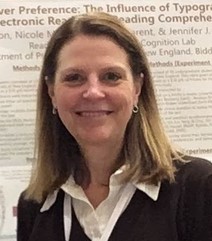Symposia
Parenting / Families
3 - (SYM 58) Childhood Abuse, Parental and Peer Emotion Socialization, and Experiential Avoidance Among College Women and Men
- BK
Benjamin Katz, Ph.D. (he/him/his)
Postdoctoral Associate
Stony Brook University
Stony Brook, New York 
Patricia J. Long, Ph.D. (she/her/hers)
Professor
University of New England
Biddeford, Maine
Author(s)
Co-author(s)
Child physical and sexual abuse (CPSA) has been linked to experiential avoidance (EA; the use of rigid cognitive, affective, and behavioral patterns to avoid negative internal events that elicit distress; Hayes et al., 1996). EA inhibits processing of negative emotions and has implications for positive emotions such as joy. Emotion socialization (ES, how others attend and respond to individuals’ emotions; Klimes-Dougan et al., 2007) may predict the development of EA, especially for those with a greater extent of CPSA, as early ES is thought to shape individuals’ responses to their internal emotional states (Linehan, 1993). The aim of this study was to evaluate mothers’, fathers’, and peers’ supportive and unsupportive ES as mediators of the link between CPSA and EA. College women (n = 472) and men (n = 203), recruited from a psychology department research participant pool, completed anonymous, web-based, retrospective questionnaires including the Childhood Trauma Questionnaire (CPSA), the Emotions as a Child Scale: Child Report Version 1.1 (mother and father ES), and the You and Your Friends Questionnaire (peer ES). They also completed the Multidimensional Experiential Avoidance Questionnaire (current EA). The effect of CPSA on EA was examined for men and women separately through six proposed parallel mediators: supportive and unsupportive ES by mothers, fathers, and peers. Analyses were conducted using Model 4 in PROCESS Version 4.2 (Hayes, 2022). Bootstrapping with 5000 iterations and a 95% confidence interval was applied to examine indirect, or mediational, effects. For women, PROCESS results indicated that greater extent of CPSA was predictive of greater EA through the effect of mothers’ unsupportive ES (completely standardized indirect effect (CSIE) = 0.05, SE = 0.02, CI95 [0.001, 0.09]) and fathers’ supportive ES (CSIE = 0.04, SE = 0.02, CI95 [0.003, 0.08]), but not other ES factors. For men, PROCESS results indicated that greater extent of CPSA was predictive of greater EA through the effects of mothers’ unsupportive ES (CSIE = 0.10, SE = 0.06, CI95 [0.01, 0.26]), fathers’ unsupportive ES (CSIE = -0.06, SE = 0.04, CI95 [-0.15, -0.001]), and peers’ unsupportive ES (CSIE = 0.05, SE = 0.03, CI95 [0.002, 0.10]), but not any adaptive ES. Results highlight the relative importance of different socializing agents for women and men in the development of EA. Research and treatment implications for targeting ES and EA to reduce distress and increase opportunities for joy with children and adults, especially those with a history of abuse, will be discussed.

